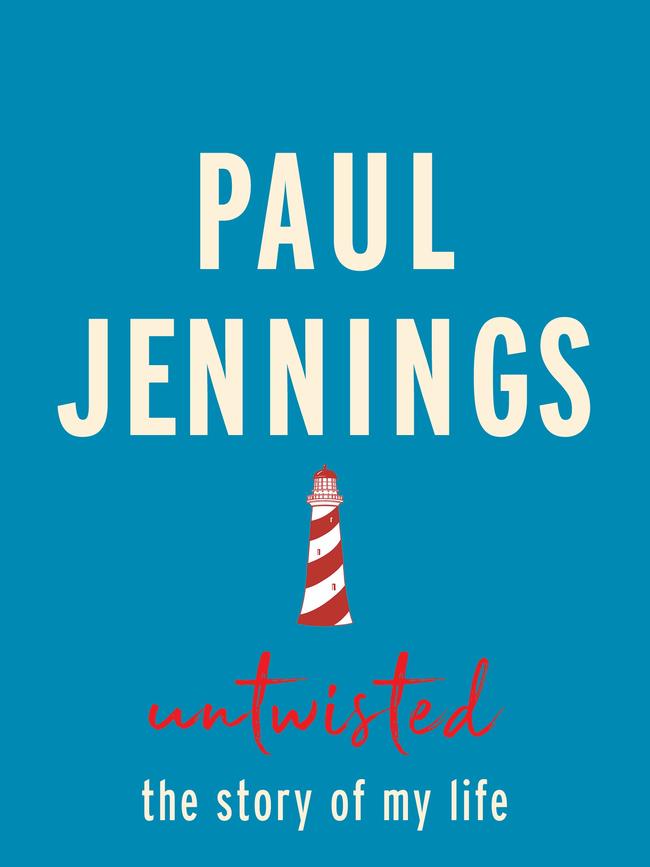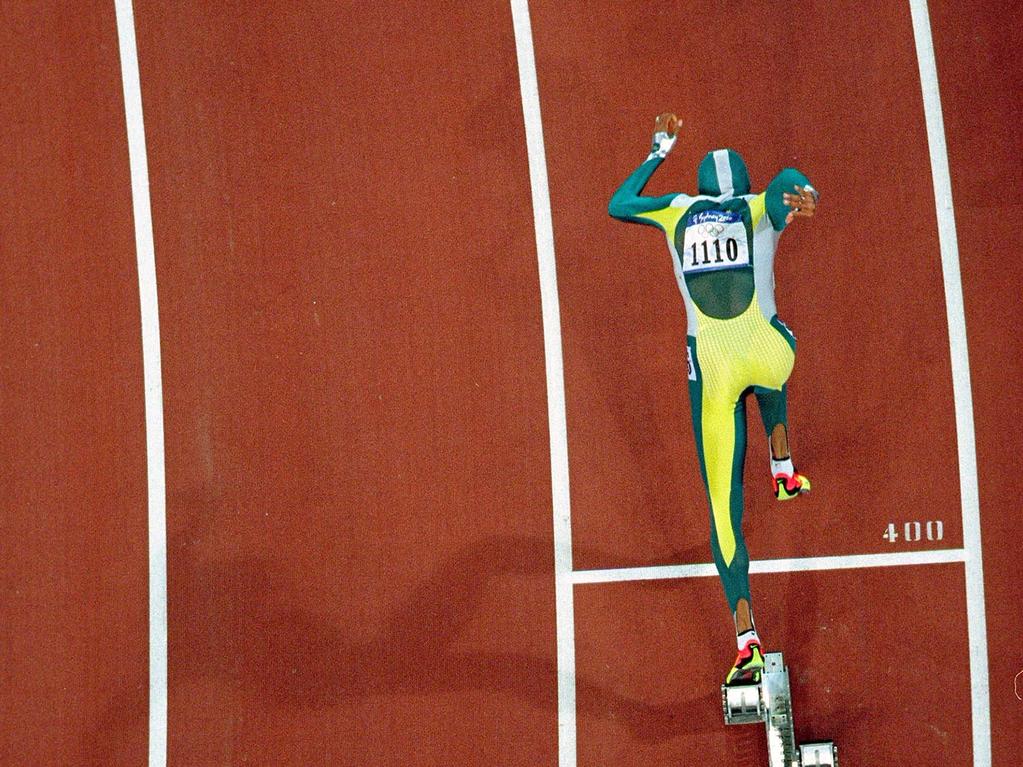Review, Untwisted: The Story of My Life by Paul Jennings
To his readers, their teachers and their parents, children’s author Paul Jennings is a hero. Unravelling the story of his own life may be his cleverest work yet.

To his readers, their teachers and their parents, children’s author Paul Jennings is a hero, a star. He has sold more than 10 million books and won dozens of prizes.
He has written the scripts of popular TV shows such as Round the Twist.
He has always loved teaching and his principal suggestion to young writers is to find raw material for stories in their own lives.
He also says they need to think of a good title.
Untwisted? Yes, that’s perfect. In his memoir Untwisted, the memories are no longer the stuff of fiction but are presented as facts in an ingenious, compelling narrative.
The realities are picked up in unchronological strands that are not so much twisted into a rope as woven together to form a pattern that shifts and repeats, shadows and reveals. The tale tangles, untangles. It unsettles, resolves. There are questions, promises, surprises, terrors, sorrows, thrills. Tragedies, too. And always the sense the pattern is coming into focus, into some kind of wonderful or horrifying unexpected bloom.
‘‘My marriage had come to an end.’’ That’s the first sentence. Thud. The writer’s quiet voice is in the reader’s ear, boldly exposing the writer’s heart. The story of that marriage is not picked up until 162 pages later, such is the weave of the cloth.
After that first announcement, the narrative becomes concerned with the role of writing in Jennings’s life, and much of the text reflects on the way Untwisted itself is being created. ‘‘The first page in a book is extremely important.’’ Indeed. ‘‘Will I be able to pull it off?’’ he asks. ‘‘All I can do is give it a try.’’ I smiled when I read that. This is Paul Jennings, after all.
He likes to ‘‘plant something that will have a pay-off later’’. Oh yes, he does.
The elements of the design of Untwisted are skilfully placed and nurtured as the fabric is woven. (In his guidelines for writing for children, Jennings advises against the use of metaphor, but I guess the title of the book is metaphoric, so my ‘‘fabric’’ images are probably OK.)
Many writers he admires, such as Saki and Somerset Maugham, are known for their surprise endings. These writers were introduced to him by his mother. In any life story there will be a role for the parents of the subject. Jennings, born in Middlesex, moved to Australia with his parents when he was six.

Phyllis Jennings is loving and affirming; Arthur Jennings is the opposite, and he is the powerful, dark presence that broods its vicious way through the narrative, often surfacing in moments of grotesque and blinding cruelty enacted upon his son.
He constantly gave the boy the idea that he was good for nothing. This Englishman loved cars. Many years later, when the boy has become wealthy from his writing, he buys seven luxury English cars that he keeps in a fabulous garage with glass doors through which the world can gaze upon his treasures.
He wakes up to the lunacy of this, and sees it for what it is: a gesture of revenge upon his father. Is he happy? Of course not. All will change. Common sense, a wise therapist, a great career, loving sons and daughters, a wonderful woman — yes, reader, there will be a happy ending, and it doesn’t even have a twist. But there is still a long and winding way to go.
The final chapter in the relationship between boy and father is sensational, triumphant and full of a ringing sadness. Such victory is never truly sweet.
In fact much of this autobiography is bittersweet. There is a word that is repeated 18 times across the text — ‘‘lonely’’. It’s a terrible word, like the distant melancholy cry of a forest creature, and every time it seems to reverberate more deeply and darkly. ‘‘I was still achingly lonely’’; he falls into ‘‘lonely despondency’’.
The other face of deep sadness is humour, and high humour is what the author is known for. Wild, crazy, zany, quirky — but always grounded in the heart, imbued with the human spirit, flavoured with wisdom, and often singing with an easy flourish of poetry.
As well as making frequent references throughout the text on how the text is being written, he demonstrates techniques by offering a story. ‘‘To make this distant anecdote seem a little bit closer and more immediate,’’ he says, ‘‘I’m going to write in the first person present tense.’’
It’s a brief account of how he and his childhood friend Timothy as boy scouts were given the ghastly task of burying a dead dog. Sixty years later, he decides to ‘‘develop’’ that into a piece of fiction. He, the consummate teacher, outlines how he did so. The final story, A Different Dog,’ is far away from the original inspiration, and the history of its creation makes for beautiful reading.
All this leads on to more memories of Timothy, and (spoiler alert here) much later in the book the reader hears the adult Timothy has killed himself. His name was not, in fact, Timothy. In the middle of the text, Jennings explains that he ‘‘tried to disguise some people’s identities by changing their names’’.
He acknowledges here that Untwisted is his version of events, and other people might have a different view. He sent the manuscript to five others for approval. One of them declined to have her role in the narrative told.
Jennings’s publication history is also threaded through the book. When he was 12, he submitted a story for publication. It was rejected. He was 40 before he summoned the courage to submit another. This was accepted, and the rest is history. It was called Unreal! Eight Surprising Stories.
He says how, early in a story, he will ‘‘put in a tease’’, that he is ‘‘baiting the reader’s interest’’. This ‘‘has to be done with care, subtly, and in a seemingly natural context’’. Untwisted is the example par excellence of the beauty of that technique.
Carmel Bird’s most recent novel is Field of Poppies. Untwisted: The Story of My Life by Paul Jennings (Allen & Unwin, 336pp, $29.99, HB).





